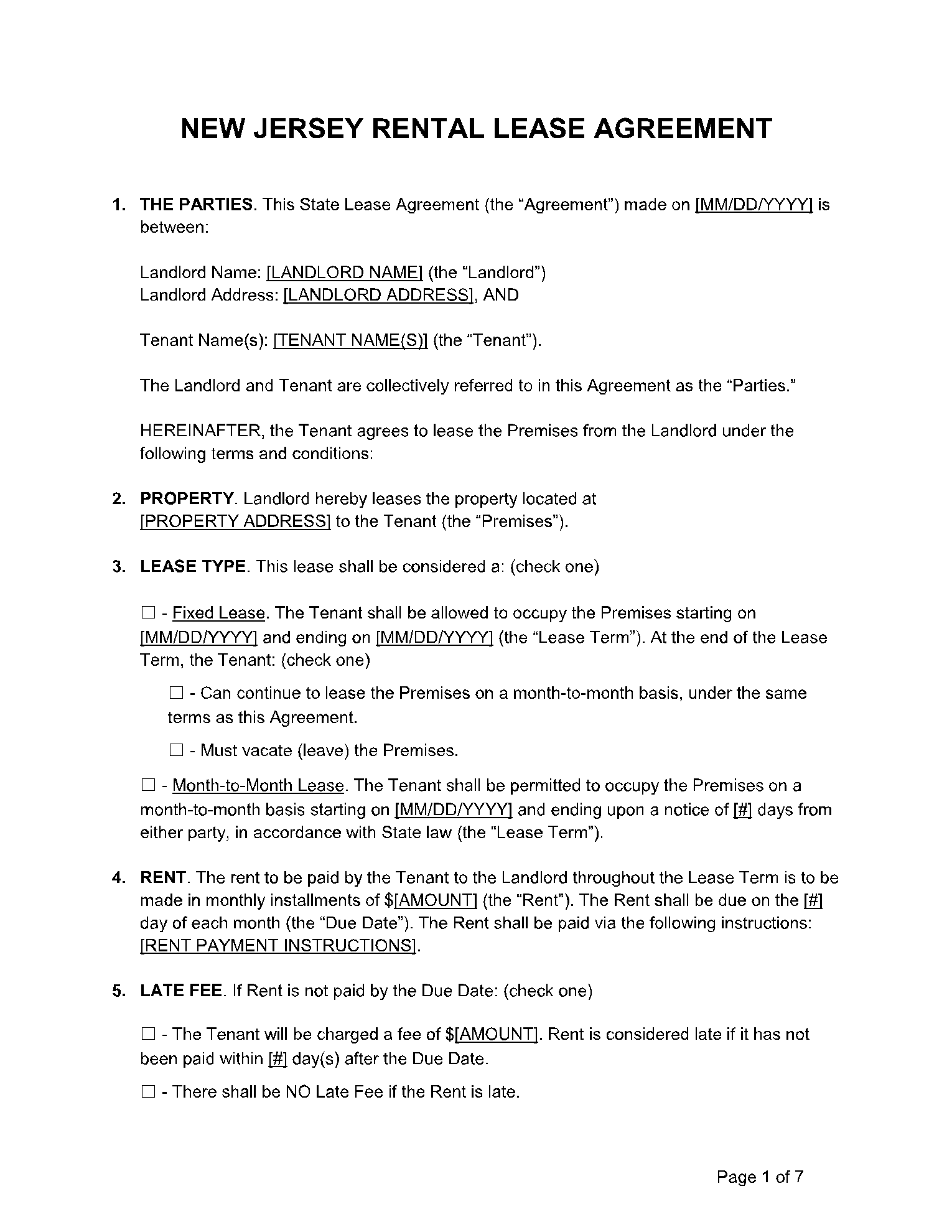A lease agreement in very simple terms is a legal binding between two or more parties agreeing upon certain liabilities as well as assets regarding a particular plot of land. A lease agreement in NJ can be of both commercials as well as residential in nature. An NJ lease agreement has to be done by abiding with the laws of New Jersey.
What is New Jersey Lease Agreement?
A rental lease agreement in NJ is an understanding between the tenant and landlord abiding by the laws governing New Jersey. In New Jersey, the landlord will generally ask the tenant for their consent to ensure a credit report check before signing up for any lease agreement.
It is one of the major prerequisites before signing up for any NJ lease agreements. In the case of a residential lease agreement in NJ or any other type, once the credit report gets verified, then both parties will negotiate on the terms of the agreement.
The tenant will be subjected to pay the amount as stated in the security deposit receipt as well as the rent for the first month along with other preliminary payments.
How to Make a Lease Agreement in New Jersey?
In order to formulate a New Jersey residential lease agreement, there are certain regulations to abide by. However, we have become digitally advanced and waiting in long queues for getting official documents seems somewhat like a punishment.
Therefore to get all your required documents that too as simply as a few taps the most reliable kit definitely is CocoDoc. Not only does the New Jersey association of realtors standard form of a residential lease but you will also get other required official documents.
All you need to do is administer their easy to use interface and get your requirements done just with a few taps. CocoDoc turns out to be your one-stop solution for all your official requirements.
You can easily get your documents in both doc and pdf formats which are easy to get printed as well.
What are the Things to Include in a Lease Agreement in NJ?
When it comes to formulating a lease agreement template in NJ, there are certain things to include, some of which are as follows.
- Mention the type of property as well as the details of the tenants and the landowners.
- Well mentioned rules that the agreement will abide by.
- Mention the security deposit amount and the payable rent every month. Also, specify the damages that one has to bear in case of mishappening.
- The rules and regulations that the tenant has to abide by. One has to remember that the property is on lease and that the people who take it upon lease follow the basic rules to keep the place intact.
NJ lease agreements usually take into consideration a lot of specifications and one has to follow the laws prevalent in New Jersey.
Conclusion
A standard residential lease agreement in NJ is usually valid for a specific period of time. After that, if you want to continue the lease, the price may increase depending on the property owner's will.
